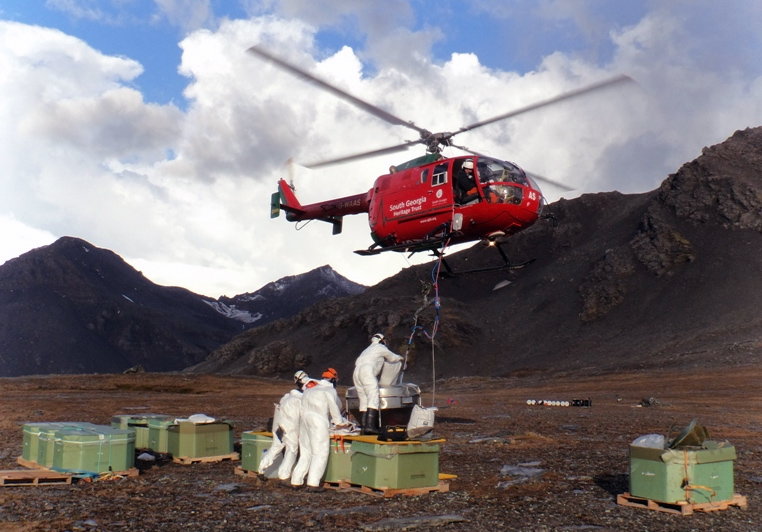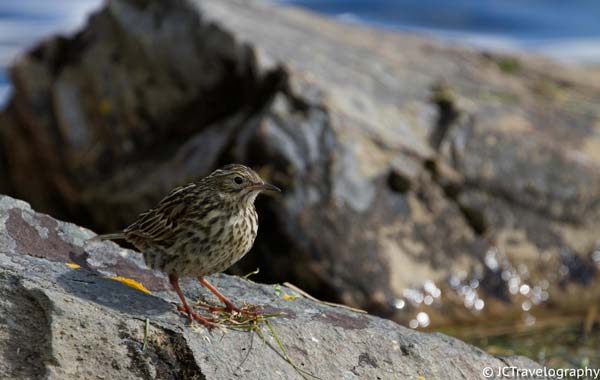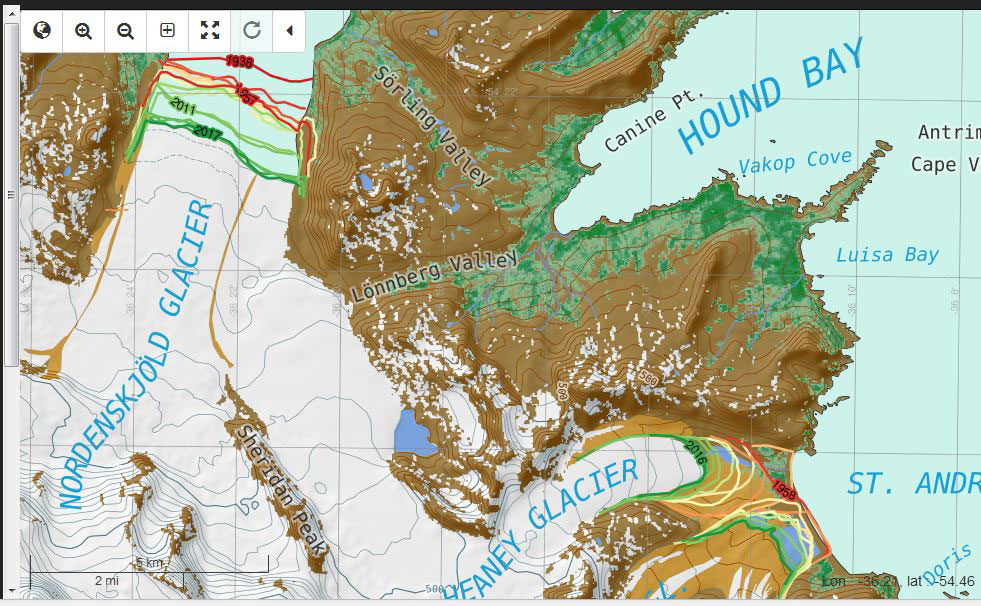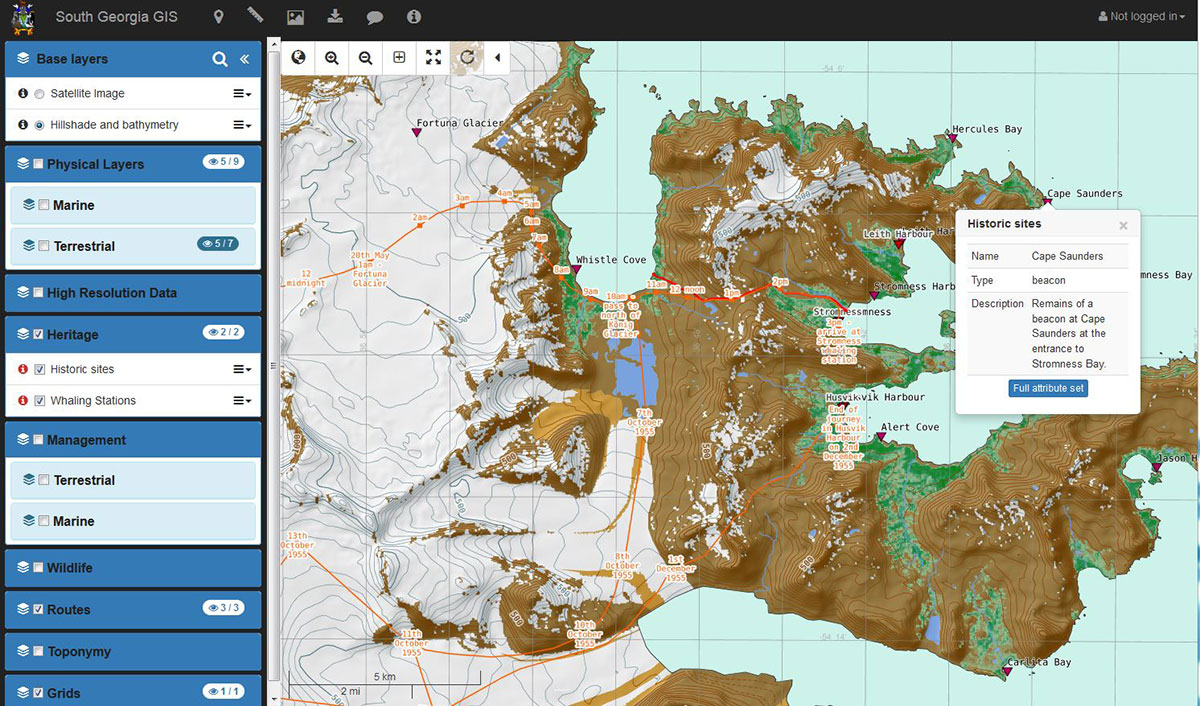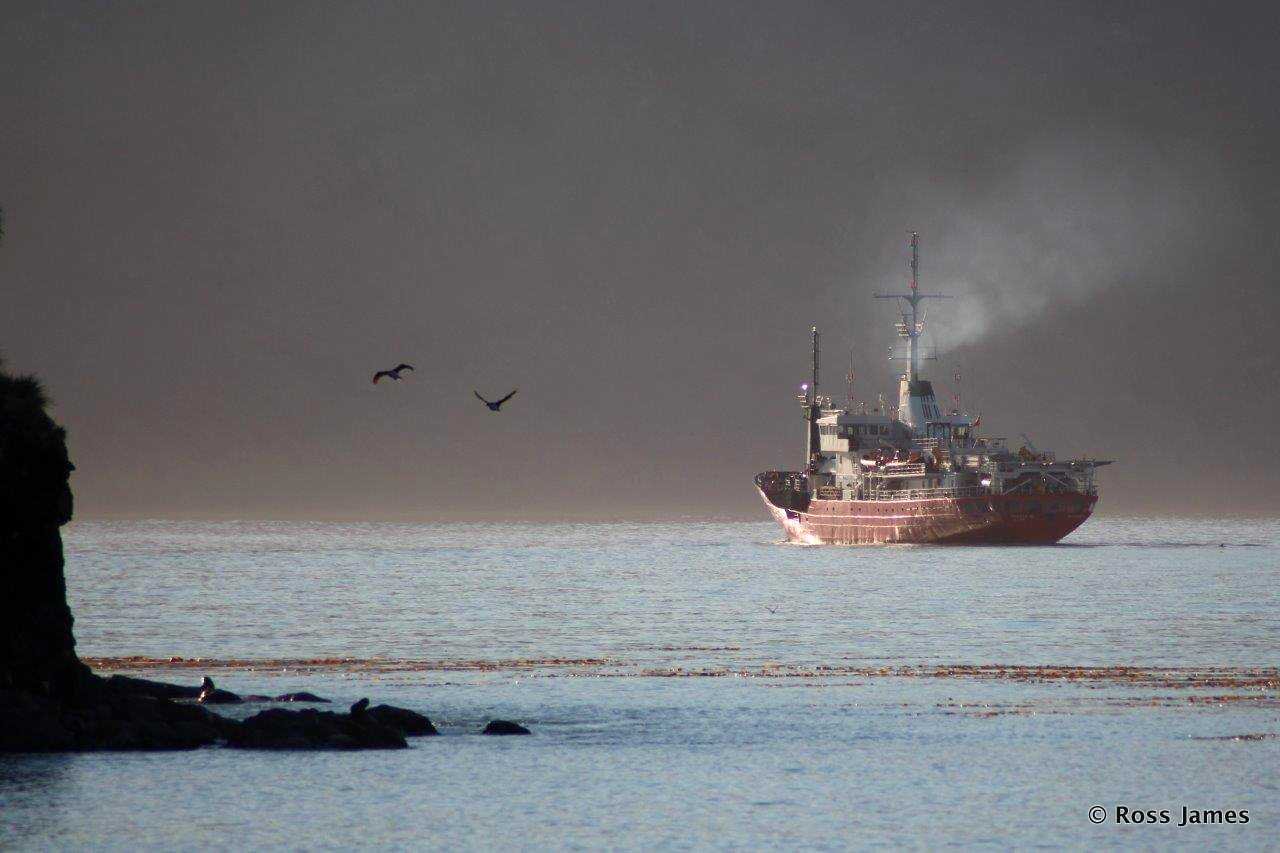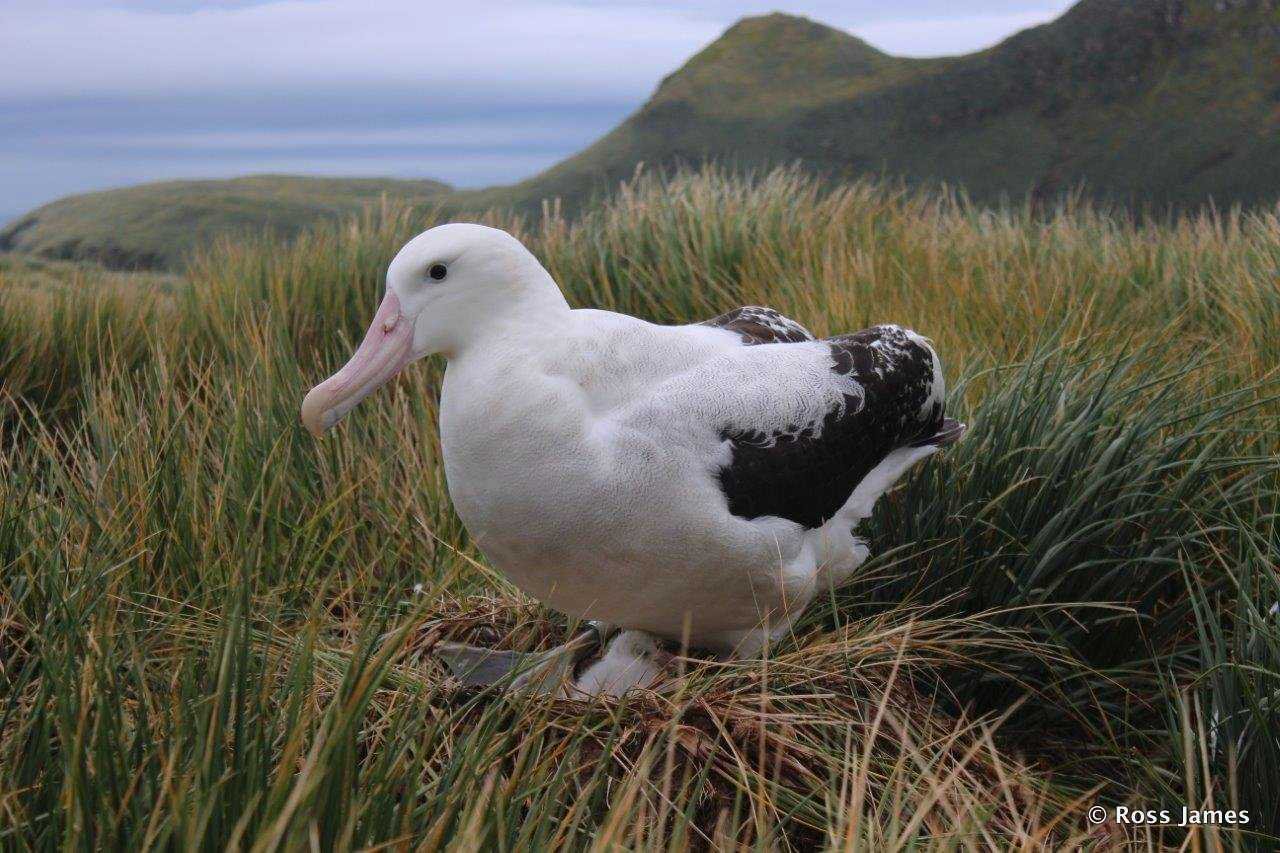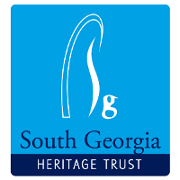 The Government is delighted that the South Georgia Heritage Trust (SGHT) has declared South Georgia rodent free. After more than a decade of planning and delivery, this announcement means that South Georgia is free from rodents for the first time in over 200 years. The Government extends its congratulations to SGHT and everyone involved in this remarkable eradication project.
The Government is delighted that the South Georgia Heritage Trust (SGHT) has declared South Georgia rodent free. After more than a decade of planning and delivery, this announcement means that South Georgia is free from rodents for the first time in over 200 years. The Government extends its congratulations to SGHT and everyone involved in this remarkable eradication project.
Invasive rats and mice first arrived on South Georgia with early sealing expeditions of the 18th Century and once ashore, spread rapidly, preying on the island’s native ground nesting birds. In the face of such veracious predation, populations of many burrowing seabird species significantly declined. Rodents also caused a dramatic reduction in the endemic South Georgia pipit as it was only able to successfully breed on rodent-free off shore islands and the south coast. Tide water glaciers were the only thing which had prevented rodents spreading throughout the entire coast of South Georgia but as a result of climate change these have been retreating ever more rapidly. A narrow window of opportunity to eradicate rodents was recognised and it was SGHT, a small charity based in Dundee, who took on the challenge to fundraise and lead the eradication effort.
The first significant step came in 2011 when SGHT led a trial to establish a suitable methodology for the eradication; the trial involved aerial dispersal of bait over an area of more than 1,000 km2. The Government of South Georgia & the South Sandwich Islands (GSGSSI) monitored the trial to establish the magnitude of target, and non-target, mortality. After the success of the trial was confirmed, several years of hard work began to plan and fundraise for the second and third phase of baiting in 2013/14 and 2015/16 respectively. In the meantime, GSGSSI undertook the eradication of more than 7,000 reindeer from the island which were introduced by whalers in the early 1900s, and which had to be removed before baiting could begin.
Two years after completion of the baiting, in 2017/18 came the task of re-visiting the sites to monitor and check for any signs of rodents. GSGSSI was delighted to be able to support SGHT in this endeavour. The first phase of fieldwork, deploying wax tags around the coast for later collection and assessment, got underway as the last snow of winter was melting. Hosted on board the Government’s vessel MV Pharos SG, the team carefully planned landings and maximised the use of good weather windows. The rugged and inaccessible nature of the South Georgia coastline made this phase a considerable challenge. Later on in the season, the monitoring team were joined by three rodent detector dogs from New Zealand and their handlers; either working from isolated field huts or from the MY Hans Hanson, this dedicated team of SGHT field workers with representatives from GSGSSI checked each of the 4600 wax tags which had been deployed and searched more then 2400 km of coast and mountain looking for signs of rodents.
The success of the eradication is not only a significant story in its own right, but has allowed GSGSSI to renew its environmental ambitions for the Territory in order to protect this extraordinary legacy. To this end GSGSSI continues to enhance its comprehensive biosecurity standards. It recently trialled a rodent detector dog programme to screen vessels prior to travel to the Territory, and plans to upgrade the existing biosecurity facility at King Edward Point. It is hoped that in the wake of the various eradication efforts, South Georgia’s iconic seabird populations will flourish, the endemic South Georgia pipit will be brought back from the brink of extinction and native vegetation communities will flourish, supported by GSGSSI’s invasive plant management programme that seeks to eliminate 33 out of 41 non-native plant species by 2020.
The SGHT press release is available on their site here.
The Government is pleased to announce that Helen Havercroft has been appointed to the position of Chief Executive Officer in succession to James Jansen. Helen will start her new role in June following a handover period. Speaking following her appointment, Helen said: “I am looking forward to meeting all the team and learning from them and our diverse range of stakeholders about the exciting opportunities that lie ahead”.
The Commissioner for South Georgia & the South Sandwich Islands, His Excellency Nigel Phillips CBE said: “I am delighted that Helen has accepted this appointment following a highly competitive application process. Helen brings with her extensive experience from within the public sector which will be a real asset to the Government. We look forward to welcoming her to the islands next month.”
Helen, who comes from a background at HM Revenue and Customs, has latterly led regeneration and change initiatives with a Council Authority in the UK. Helen comes to the Falklands and South Georgia for the first time with her 2 children and partner, Nathan.
In recognition of the important contribution science and research plays in enhancing knowledge and awareness of this UK Overseas Territory, GSGSSI is delighted to announce that from the 2018/2019 season it will no longer charge fees for Category 1 and Category 2 Regulated Activity Permits (RAPs). A number of other changes are being introduced this season to make it easier to apply for a permit and to further encourage high quality science and research. A processing fee of £1000 will remain for Category 3 permits which are designed for higher impact projects requiring external assessment and assurance against best practice standards.
To ensure our RAP application process is up to date, conforms to best practice standards and accounts for feedback we receive from past projects, we review and update the application process each year. The 2018 application forms are now available online. In addition to removing fees for Category 1 and 2 permits, the following key changes have been made to the application process:
- Projects which involve sampling of less than 1 kg of marine phytoplankton or zooplankton are now Category 1 rather than Category 2;
- A Privacy Policy regarding the purpose, use and sharing of any Personal Information collected via RAP application forms has been implemented. All applicants are required to read this prior to submitting their application;
- A Project Overview form has been created to capture basic data about project queries.
- Application windows have been discontinued so Regulated Activity Permit applications can now be submitted at any time.
A flowchart to help applicants determine what type of application is most suitable for their project is available here.
GSGSSI recently commissioned GIS developers at the British Antarctic Survey (BAS) to upgrade the Government’s Geographic Information System (GIS) portal.
The first edition was launched in 2008 and now includes completely new topographic mapping, environmental layers and satellite imagery base layers, and runs through a faster interface. Some of the new data was compiled for the recently updated map of South Georgia & the South Sandwich Islands, published by BAS, which the Government marked with the launch of a ‘Mapping of South Georgia’ stamp issue. Among other things, the new data highlights the pace at which climate change is affecting South Georgia’s glaciers. We asked Dr Adrian Fox, Head of Mapping and GIS at BAS to write about his recent work….
[By Dr Adrian Fox, Head of Mapping and GIS, British Antarctic Survey]
The South Georgia GIS (SGGIS) is a one-stop resource for researchers and other visitors to South Georgia. It provides a comprehensive portal to information about South Georgia’s landscape and environment, accessed through an interactive web-map. Limited information is also available for the South Sandwich Islands. Most of the data are freely downloadable for all uses; no registration is required, but any use of the data should acknowledge ‘South Georgia GIS’ as the source. Formats available include ESRI Shapefile, KMZ and CSV.
The GIS is structured with base layers of topographic information including a Landsat-8 15 m resolution satellite image mosaic, Digital Elevation Model and the regional-scale bathymetry, coastline, contours and rock/moraine/ice mapping compiled for published maps of South Georgia (1:200,000 scale) and the South Sandwich Islands (1:25,000 and 1;50,000) https://www.bas.ac.uk/wp-content/uploads/2017/12/Map-Catalogue.pdf
Detailed, rigorous mapping from aerial photography and sub-metre resolution satellite imagery is included for Bird Island, Barff Peninsula, Busen Region, the Shackleton Crossing route and Thatcher Peninsula.
Environmental and management layers can be displayed in relation to the underlying mapping and satellite imagery. These include detailed information on: Heritage features such as historic sites and whaling stations; Land and Marine environmental management information such as protected areas; Wildlife sites such as penguin colony locations; and routes, both modern recognised routes and the Shackleton Crossing and Carse South Georgia Survey tracks. Nearly all the data is freely downloadable in ESRI shapefile, kmz and csv formats.
The Government of South Georgia & the South Sandwich Islands commissioned GIS developers at British Antarctic Survey to create the SGGIS. The first edition was launched in 2008 but has recently been fully revised. The GIS now includes completely new topographic mapping and satellite imagery base layers and comprehensively updated environmental layers, and runs through a faster interface.
The website is built using Open Source software, and exports fully OGC-compliant web services.
[Press release by the South Georgia Association.]
The South Georgia Association is delighted to announce the award of its newly struck medal for 2018 to Mr Robert Wellesley Burton, “for outstanding contributions to the study and conservation of wildlife and the heritage of South Georgia”.
The Medal has been made possible by a generous bequest from a long-standing supporter of the Association, Miss Morag Husband Campbell. She was so enthralled when visiting South Georgia, she determined to leave a bequest to the SGA. The Medal comprises a Sterling silver relief medallion, 60mm in diameter. The name of the awardee is inscribed on the reverse.
The Recipient Mr Robert Burton is a well-known wildlife author. Following a degree in Zoology at Downing College, Cambridge University he served as a meteorological/biological assistant at the British Antarctic Survey base on Signy Island in South Orkney Islands for two years. In 1971-72 he was a member of the team initiating a new programme of research at Bird Island, South Georgia where he assisted research on fur seals and albatrosses. Returning to the UK he developed a career as a wildlife author and columnist, writing many books and contributing to The Telegraph’s weekly “Nature Notes”, “Through a Naturalist’s Eye” in British Wildlife and to other magazines. In the 1970s and 80s he took part in several expeditions to the Arctic. In 1994, he became Director of the South Georgia Museum in Grytviken and during his four years the Norwegian Church was fully restored. Since 1992 he has been lecturing on cruise ships in Antarctica and leading camping expeditions to Greenland for his small company Arcturus Expeditions. More recently, he has vigorously supported conservation and heritage initiatives in South Georgia. He has edited and written extensively on South Georgia subjects including editing, with John Croxall, the recent definitive “A Field Guide to the Wildlife of South Georgia” and producing the South Georgia Government booklet for visitors. Robert Burton was awarded the Polar Medal in 1996 for services as Meteorologist, Biological Assistant and Museum Curator. “Burton Cove” is named after him on Bird Island, South Georgia.
Robert Burton commenting on the award said: “I am delighted to receive this award. I am lucky to have been one of many people involved with South Georgia – putting it on the map, so to speak – in recent years. When I first visited the island in 1964, it was Terra Incognita to most people. Nowadays, it has become familiar through television programmes about its spectacular and profuse wildlife, and through the interest in the explorer Ernest Shackleton. And now its importance in global ecology is being recognised”.
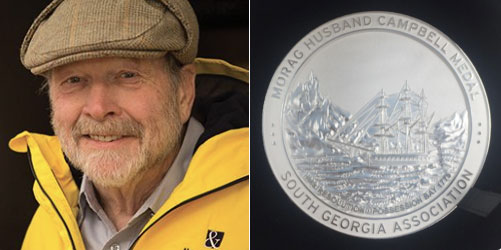
Christopher or ‘Pecker’ was known to his family as a gentle giant. He was the youngest of six children, having four sisters and a brother. His father and older sisters were all born in the Falklands where they still have a lot of family who live there. Aside from the love he had for his family and friends, one of his main loves was music; Chris had varied tastes and attended many concerts and festivals with his siblings over the years. He had a great sense of humour, which was very dry and witty.
Chris loved travelling and wanted to see the world differently to others. He loved other cultures and always planned his trips meticulously. He liked to try different sports and spent time over the last 2 years learning to surf and attending one of the intense Thai fitness programmes in Thailand.
When he left school he worked as sous chef for some time before joining and serving in the Navy for 6 years. After working for a short time as part of the security team at Sellafield, he was contacted by one of his cousins about a job in the Falklands and set off for the Islands around 5 years ago. On arrival, in December 2013, Chris joined the Falkland Islands Government Fisheries Department as a Fisheries Protection Officer. In this capacity Chris spent much time at sea patrolling the waters of the Falkland Islands and South Georgia to protect them against illegal fishing and undertaking vessel inspections. At South Georgia, where Chris undertook a patrol in each of the last 4 years (2014-2017), Chris was designated an inspector under the international Convention for the Conservation of Antarctic Marine Living Resources. His actions here made an important contribution to the conservation and sustainable management of the Southern Ocean. Chris sadly passed away following a motorbike crash whilst on holiday in Brazil on the 2nd May 2018.
Speaking about her brother, Naomi said Christopher “has left an enormous hole in our lives but he has also inspired us throughout his short life on how much can be achieved. We have so many happy memories and tales to tell.”
South Georgia declared rat-free after centuries of rodent devastation
“World’s biggest project to kill off invasive species to protect native wildlife is hailed a success”
How charity workers rid an entire Antarctic island of rats
“South Georgia was once home to 5 million rats — but now it has zero”
Large Island Declared Rat-Free In Biggest Removal Success
“South Georgia Island near Antarctica is now teeming with native wildlife, thanks to an effort to remove invasive rats that had been devouring birds.”
Invasive rats that devastated birds on South Georgia island eradicated after two centuries
“Two centuries after rats first landed on the British overseas territory of South Georgia on board sealing and whaling ships, a team of conservationists on Wednesday declared the island rodent-free.”
Port Lincoln local takes part in rat purge
“Through this project the South Georgia Heritage Trust has worked to eradicate rats which were first brought to the island by whalers in the 19th century and prey on native seabirds.”
Following in the footsteps of Sir Ernest Shackleton
“It’s a very long 9000 kilometres from here to South Georgia but five Kiwis have contributed to a major achievement on this distant island.”
Kelly of the Antarctic! TV presenter Lorraine Kelly fulfills the dream of a lifetime and sets sail on the trail of a legendary polar explorer
“The TV star’s voyage saw her sail from Ushuaia in Argentina to South Georgia”
Shackleton’s ship search for UC professor
Sir Ernest Shackleton shorthand mystery solved with the help of The Courier
Naturalist to be honoured for his work in supporting wildlife on island
“A leading naturalist and author has been honoured for his work in promoting conservation in South Georgia.”
South Georgia fishing licenses controversy headed to the High Court
“Under the heading of ‘Betrayal’ Fury as UK’s bid for application to fish near the Falklands is Snubbed’, Cyril Dixon from the Express reports that the head of South Georgia Fisheries company, Rupert Street will be going to the High Court in London to seek a judicial review on the decision which denied his company fishing licenses in South Georgia Islands.”
SGSSI Commissioner’s 12-Day Visit To South Georgia
“The Commissioner for South Georgia & the South Sandwich Islands, Nigel Phillips CBE, returned on March 17th from his visit to South Georgia where he was accompanied by representatives of some of South Georgia’s key partners and stakeholders.”
Share[addtoany]


